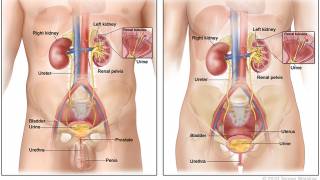Bladder Cancer Treatment Innovates in the Right Direction

After 40 years, the Bacillus Calmette–Guérin (BCG) vaccine has remained the most effective treatment for non–muscle-invasive bladder cancer (NMIBC), wrote researchers with Memorial Sloan Kettering Cancer Center.
However, tumor recurrence and progression are common, especially for those patients with carcinoma in situ (CIS), commented Eugene J. Pietzak, M.D. and Harry W. Herr, M.D., in an Editorial published by the NEJM Evidence on December 27, 2022.
Furthermore, therapeutic options are limited when BCG treatment fails.
Pembrolizumab was approved by the U.S. Food and Drug Administration (FDA) for this indication in 2020.
Knowing innovation was needed, BCG-unresponsive NMIBC criteria were developed in 2015 to facilitate clinical trials of novel therapies.
Since then, world-class researchers have been very productive.
For example, the NEJM Evidence published results from a clinical trial studying the novel N-803 plus BCG in adults with NMIBC CIS with or without Ta/T1 papillary disease.
The ImmunityBio's QUILT 3.032 study's primary endpoint was met in the high-risk CIS cohort with a 71% complete response rate (CR) with a median duration of response of 26.6 months.
And a 53% CR rate at 24 months and a safety profile comparable to BCG vaccination alone.
The primary endpoint was also met in the papillary NMIBC cohort, with 55% remaining disease free at 12 months.
This IL-15 superagonist N-803, referred to as nogapendekin alfa inbakicept, acts synergistically with the TICE® BCG vaccine, with a 90% probability of avoiding cystectomy over 24 months in responders.
"The efficacy and minimal toxicity of this combination represents a major advance for the care of patients with BCG-unresponsive NMIBC."
"This promising combination offers a potential alternative to cystectomy and may allow us to move beyond single-arm studies toward randomized phase 3 trials against other novel therapies, added these researchers.
These positive data form the basis of ImmunityBio's Biologics License Application for BCG-unresponsive NMIBC CIS, which the FDA accepted for review in July 2022.
Furthermore, the FDA confirmed a Prescription Drug User Fee Act date for N-803 plus BCG's use of May 23, 2023.
"The peer review and publication of data in NEJM Evidence highlights (Nov. 2022) the significance of the positive results of the QUILT 3.032 trial in patients with BCG-unresponsive NMIBC," commented Patrick Soon-Shiong, M.D., Executive Chairman and Global Chief Scientific and Medical Officer at ImmunityBio, in a related press release on November 10, 2022.
"These data further our understanding of N-803's unique role in potentially boosting the proliferation of natural killer and T cells while synergistically enhancing BCG efficacy."
This is exciting news as bladder cancer is the 10th most commonly diagnosed cancer with the highest lifetime treatment costs per patient.
Moreover, N-803 has been studied in more than 700 patients in multiple phase 1 and 2 trials in liquid and solid tumors.
And it is currently being studied in trials for pancreatic cancer, non-small-cell lung cancer, non-Hodgkin's lymphoma, and HIV.
And roughly 80% of new bladder cancer diagnoses are NMIBC.
While the 100-year-old BCG vaccine continues to be used for various diseases, such as tuberculosis, 14 sub-strains have evolved and are used in BCG vaccines worldwide.
This new solution could be the right innovation for many in need today.
Disclosures: Data was published by the NEJM without any industry conflicts of interest disclosures, and this news article is not paid content. The article was updated on Jan. 12. 2023, regarding the type of BCG vaccine.
Our Trust Standards: Medical Advisory Committee





